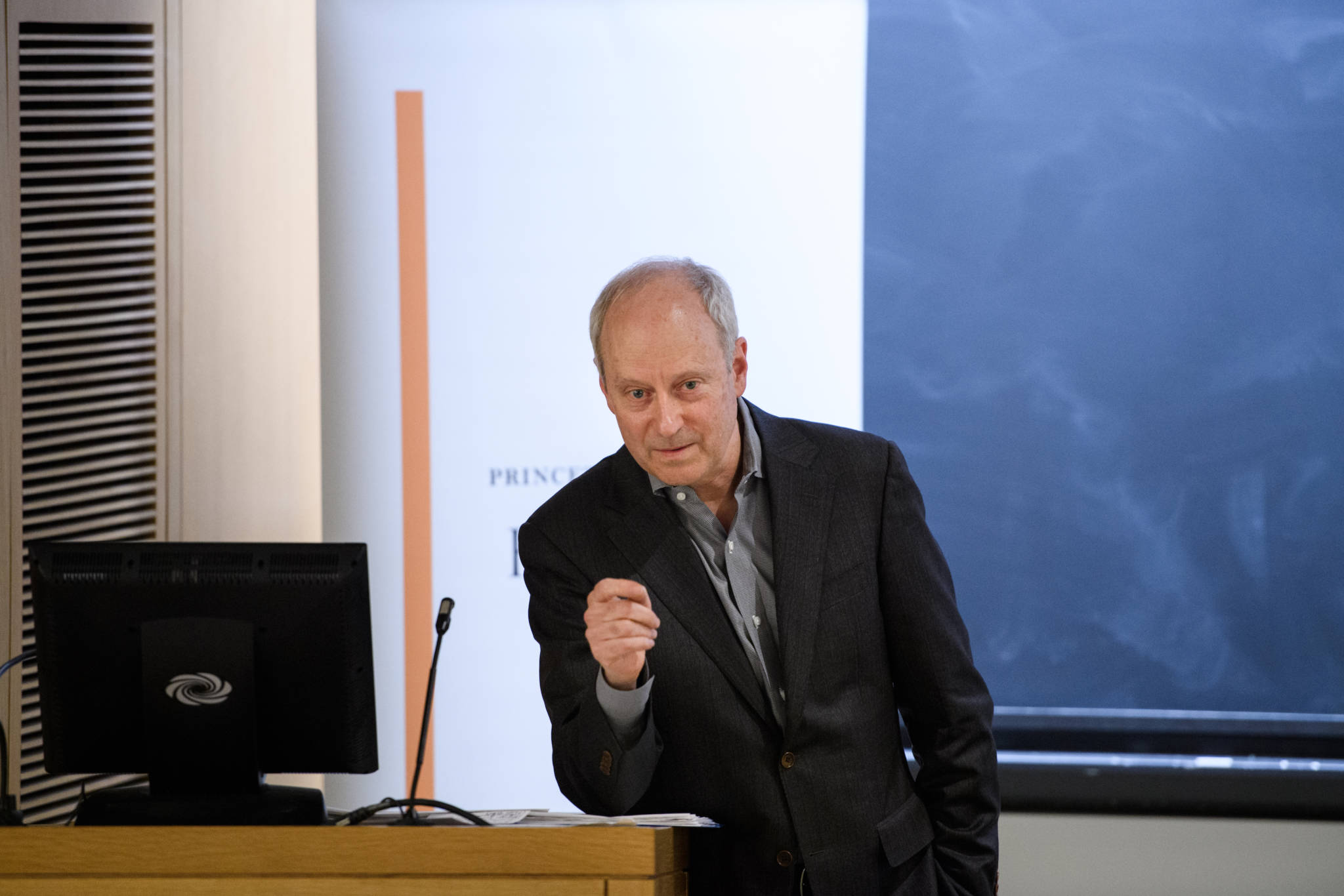On April 6-7, 2018, Jeremy Adelman (History) and Samuel Moyn (Yale) convened a workshop on the idea of the moral economy with the aim of exploring the ways in which moral economics and moral economists shadow political economics.
Speakers from institutions across the country participated in examining ways in which moral economics offered a critical vocabulary, alternative histories, and political counterpoints to thinking about what Karl Polanyi called “market society.” Panelists discussed key moments and key figures, from E. P. Thompson who gave us the concept “moral economy,” R. H. Tawney, to Marcel Mauss, from Rabindranath Tagore to James C. Scott; the popularity of histories of capitalism, and the debate about globalization and neoliberalism.
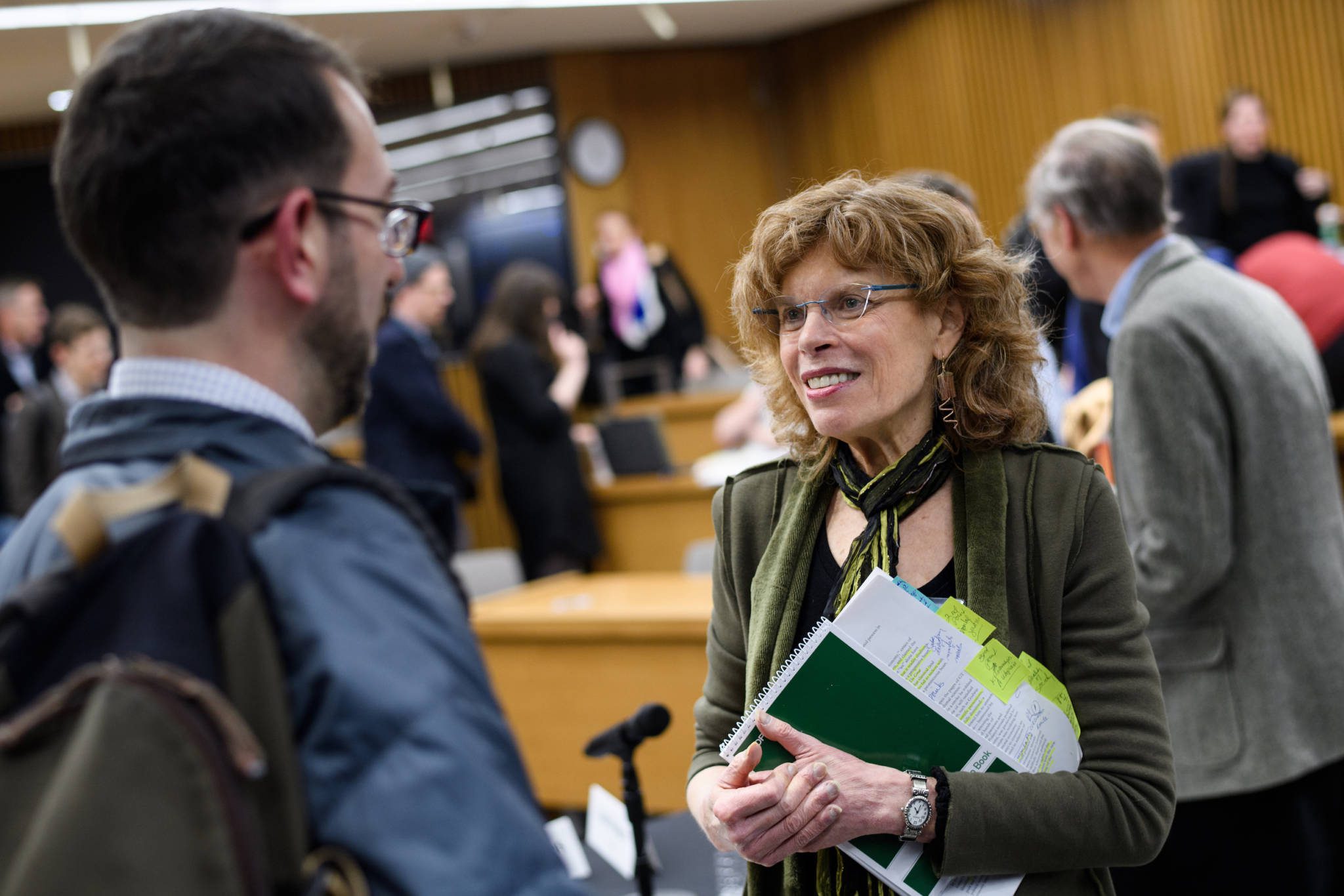
Margaret Somers, Professor of Sociology and History (Emerita), University of Michigan
The keynote address on Friday was delivered by Harvard’s Michael Sandel.
For a conversation on “The Moral Economy,” he was the only philosopher to speak. After a day-long series of panels gathering historians, legal scholars and social scientists, the renowned political philosopher, Michael Sandel, delivered the keynote address. His talk stood apart from all the other sessions by asking an explicitly normative question: “What is the role of money and markets in a good society?” Speakers before him had only touched on this moral quandary by tracing how past thinkers and reformers had engaged with this thorny question.
Either the keynote’s provocative subtitle, “Rescuing Economics from the Economists,” or Sandel’s profile must have drawn the large crowd. Sandel’s online philosophy course on Justice has enrolled more than a million students over the years. His page-turning book on the moral limits of markets, What Money Can’t Buy (2012), has been translated into twenty plus languages, and Sandel has travelled the world preaching that economics and markets are not value-free. This message has found receptive audiences across the globe, even in the heart of Communist China.
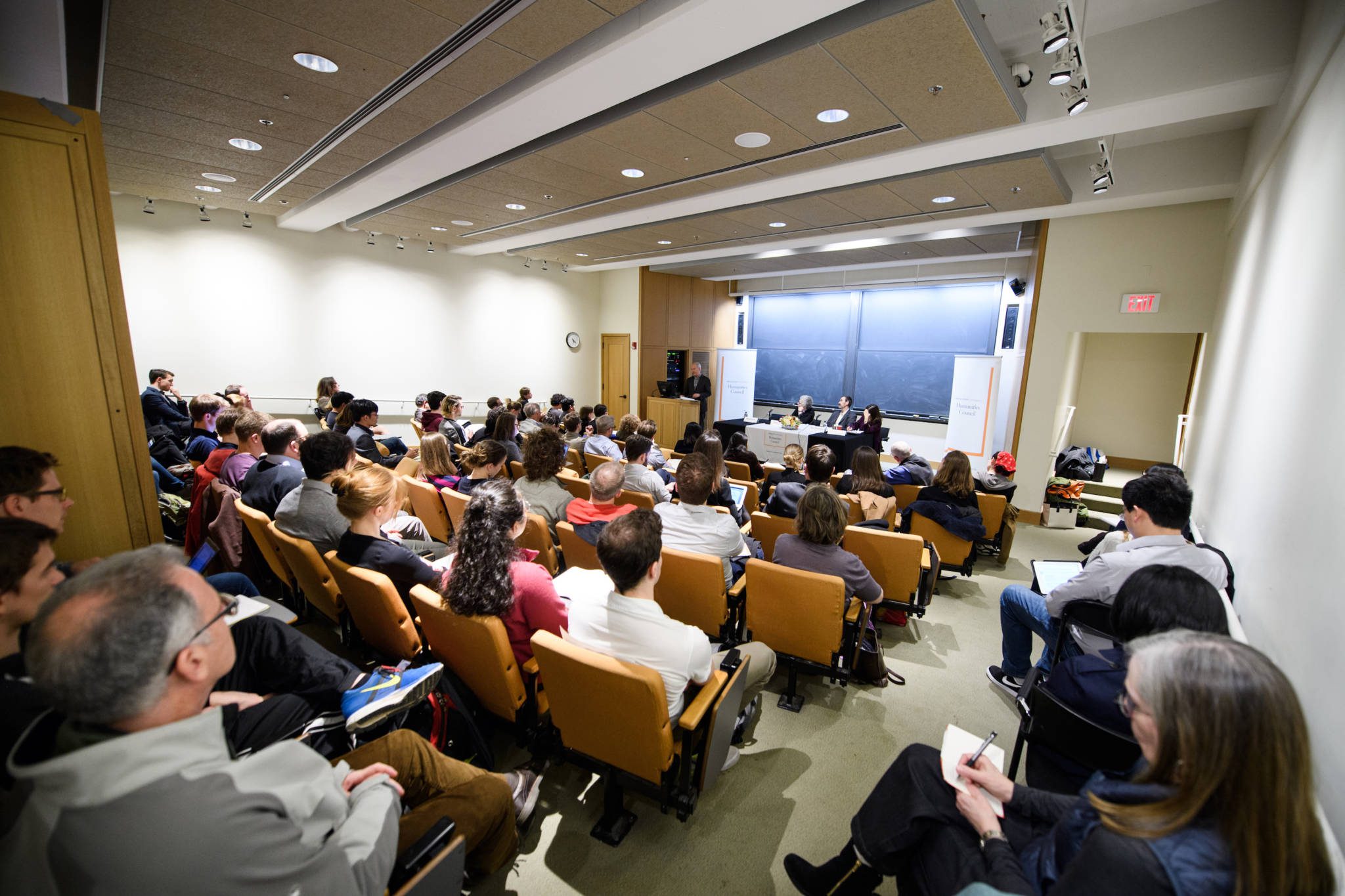
Michael Sandel Delivers the keynote lecture at East Pyne
Why rescue economics from economists? The title suggest that Sandel is critical of contemporary economic life, that there is a problem that needs rescuing.
The first problem, according to Sandel, is a false teaching of economics. Economists maintain that their discipline is value-neutral. Economists also assume that markets are neutral mechanisms which distribute goods. Assigning a price to a good does not change the value of the good. For Sandel, this pretense is not only wrong-headed, but dangerous.
The second and interdependent problem is that markets and market reasoning have seeped into all realms of society where they do not belong. Echoing Polanyi’s Great Transformation (1944), Sandel claims that in the U.S.—as in much of the world—we have gone from having a “market economy” to being a “market society.” In a market society, not just productive activity, but health, life—including women’s uteruses to blood transfusions and organ transplants—education, civic and family life, politics, and the media are commodified.
In a market society, everything is for sale.
But why does Sandel think we should worry? Why does he think there should be moral limits to markets? For at least two reasons.
First, as money determines access to more and more ingredients of a good life—living in a safe neighborhood, good health, and a quality education—inequality becomes a much graver problem. In market societies, inequality and poverty are more crushing. Under these conditions, there is a “fairness argument” to restricting the scope of markets. If there are background conditions of sufficiently high inequality to create coercive conditions, then the sellers of organs or blood, for instance, are not making meaningfully free choices. The fairness objection therefore draws on the liberal value of individual consent.
Second, the “corruption argument.” Sandel proposed that certain civic goods are degraded, sometimes entirely destroyed, by being bought and sold. Take friendship: would a bought friend, be a true friend, Sandel asked? Obviously not. The act of buying a friend would destroy the potential for that person to be genuinely caring and loyal friend, who is not only using the relationship for their own gain.
The key, for Sandel, is that markets are not empty mechanisms: they embody certain values, certain norms. Markets leave a mark on the goods they value and trade–markets can even transform the very goods they distribute. That is why markets corrupt some goods.
For much of the talk, Sandel hammered away on the corrupting power of markets. Pertinent political examples of market reasoning being extended to social practices not usually regulated by the market brought the moral quandary into light. Should a market for tradable refugee quotas be established to match refugees with countries offering spaces? On the one hand, introducing a market mechanism might increase the number of asylum spots, thus saving more lives. How could the solution be objectionable, Sandel asked? Well, a market in refugees treats humans in distress as undesirable chattel to be traded rather than humans in peril. Introducing a market degrades the dignity of refugee’s humanity.
Then came the time for respondents’ comments and questions.
Princeton’s Economics and Humanistic Studies Professor, Marc Fleurbaey, began with a convivial comment, professing his belief in the value of interdisciplinary scholarship. So, why, he asked Sandel, do you want to “rescue economics from the economists?” Fleurbaey took Sandel to mean that economics was beyond the pale and philosophers had to save it.
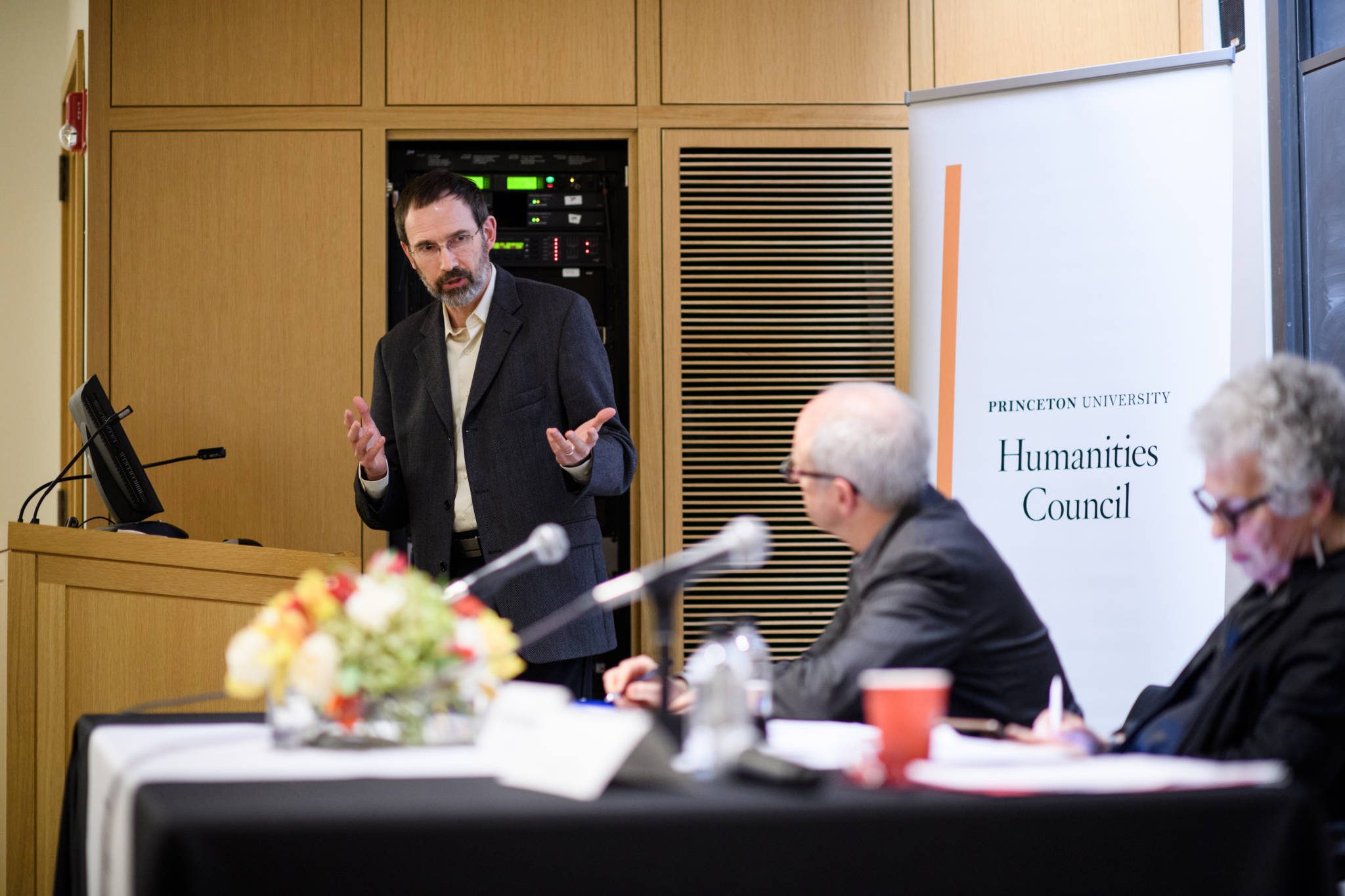
Marc Fleurbaey, Professor in Economics and Humanistic Studies, Princeton
Fleurbaey proceeded to dismiss Sandel’s portrait of the dismal science. He underlined that professional economists no longer pretend their discipline is value-neutral: the main charge Sandel laid at their door. According to Fleurbaey, this picture was “outdated.” So, it might have been true once, but certainly not anymore. Fleurbaey underscored that economists now openly disclose that their work is value-laden. Their models and policy advice aim to maximise the values of efficiency, general welfare—which, we might quibble is defined purely as utility—and GDP.
Both Sandel and a prominent sociologist at the conference, Didier Fassin, objected. Even if many economists with PhDs no longer pretend theirs is a value-neutral science, there remains a wide gulf between popular knowledge of economics—undergraduate “textbook economics”—and professionals. It is this popular knowledge which Fassin and Sandel believe flawed.
Other excited responses mostly embraced Sandel’s reasoning. Stanford’s renowned political scientist, Margaret Levi, connected a conclusion of the conference’s earlier discussion on Polanyi. She noted that values and morality are always embodied in markets: whether markets are constrained by restrictive regulations or set “free” according to Hayek and Friedman’s blueprints.
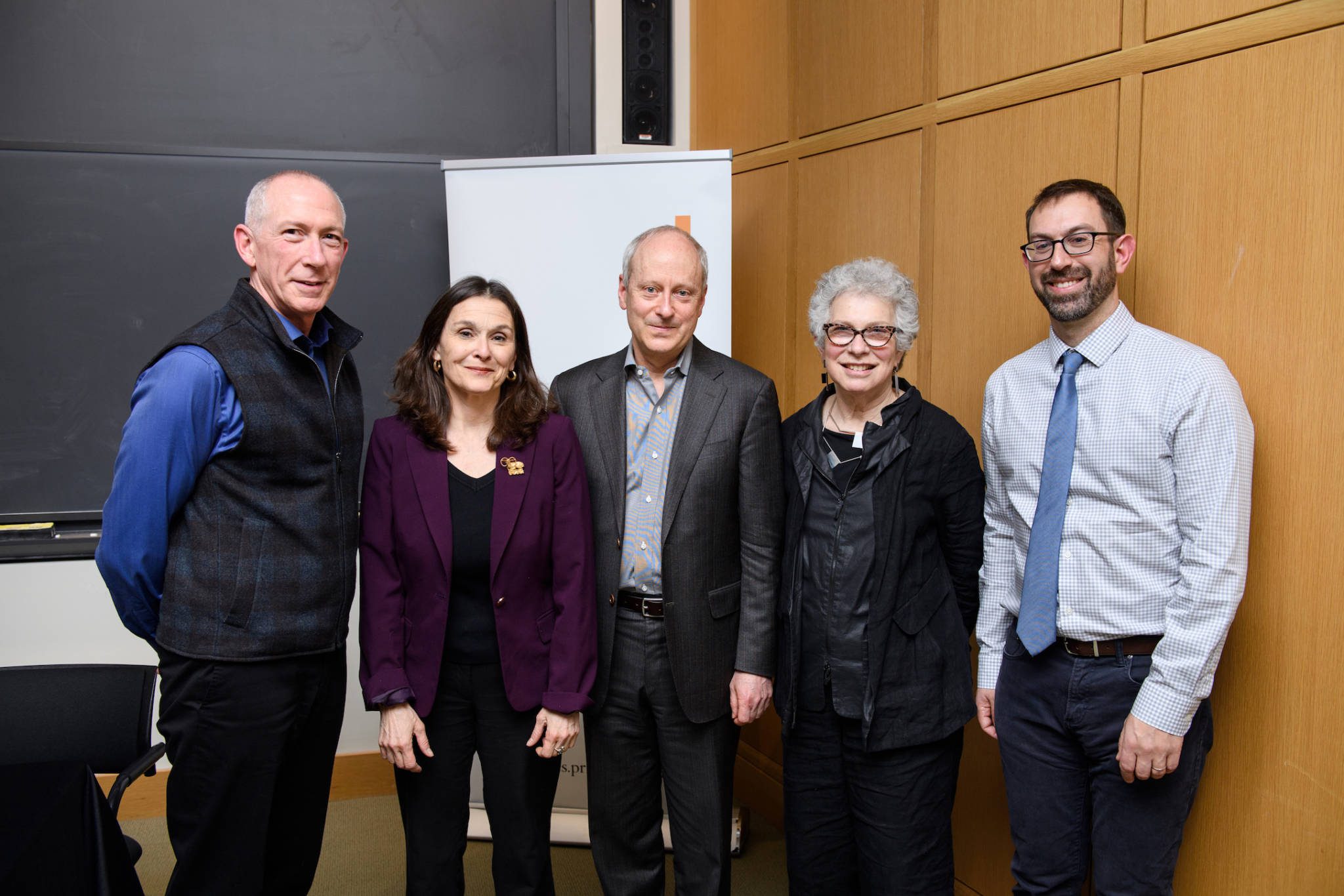
From left: Jeremy Adelman, Professor of History, Princeton; Esther Schor, Acting Chair of the Humanities Council at Princeton; Michael Sandel, Professor of Government Theory, Harvard; Margaret Levi, Director of the Center for Advanced Study in the Behavioral Sciences at Stanford; and Samuel Moyn, Professor of Law and History, Yale.
Levi did put some faith in behavioral psychology for rescuing economics. No surprise there, perhaps. She is the Director of Stanford’s Center for Advanced Study in the Behavioral Sciences. Sandel’s talk had noticeably made no mention of behavioral economics—one of the biggest advances in the discipline. It turns out he thinks it is just as much part of the problem with economics, and certainly not where a remedy to the over-extension of markets will come from.
Fleurbaey provided the final comment that stirred the room. Why is it, he asked Sandel, that all his work on the moral limits of markets, and that of his colleagues, has never discussed the wage-labour contract? Surely the effect of setting a price or wage on labour is subject to the same corruption objections as the setting of a price on refugees? And what topic could be more pertinent in a world of increasing inequality between capital and labour? The glaring absence of the wage-labour contract in Sandel’s work completely puzzled Fleurbaey given the long tradition of classical political economists discussing the institution. Furthermore, some contemporary economists have also begun critiquing the wage-labour contract in light of galloping inequality. So perhaps, economists are not so hopeless after all?
By Liane Hewitt




